12 Biggest Ships In The World
The shipping sector is sustained by a modern fleet of vessels belonging to different segments. Some ships carry general cargo, while others are specialised bulkers or ice-breaking ships made to ply the harshest shipping routes. A Few vessels, like tug boats, handle offshore projects, while cruise ships are built for leisure activities.
In this article, we bring you the crowning vessel of each type, a leader of maritime innovation and design in its segment. Let us have a look at the 12 biggest ships in the world.
1. MSC Irina- World’s Biggest Container Ship
MSC Irina is the biggest container ship in the world. It was ordered by MSC and constructed by Chinese Jiangsu Yangzi Xinfu Shipbuilding Co.
It measures 399.9 m lengthwise and 61.3 m breadthwise, making it a true mammoth of the seas. Work began on the vessel in 2021, and dock assembly started in June 2022. She underwent sea trials in 2023 and was sent to Zhejiang Zhoushan Shipyard for final work as it was set for delivery in March.
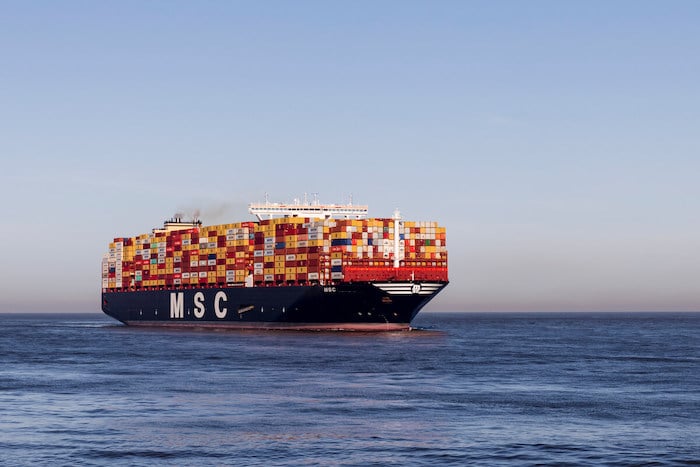
It is sailing under the Liberian Flag and can carry over 24,300 standard 20-foot shipping containers. Irina is also endowed with several energy saving technologies and smart infrastructure like its small and bulbous bow, large-diameter propellors, an air lubrication system that decreases drag on the hull and also shaft generators for producing additional power.
These features help the container ship reduce energy consumption by 3-4 per cent compared to other container ships, cutting carbon emissions as well.
2. Icon of the Seas- Biggest Cruise Ship
Royal Caribbean’s Icon of the Seas is the largest cruise ship in the world, with a 248,663 gross tonnage. She is ready to enter service on 27th January 2024 out of the Miami Port in the U.S.
She is powered by LNG and has 6 multi-fuel Wartsila engines that can use both LNG and distillate fuel. It also has fuel cells to generate electricity. She is the first Royal Caribbean ship to employ such technology.
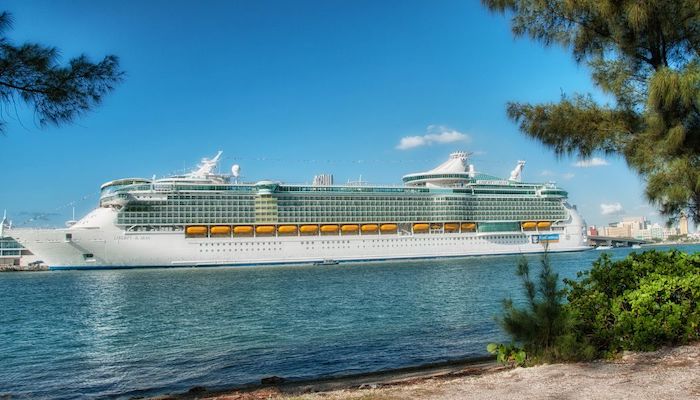
It can accommodate 7600 guests at maximum occupancy and has a 2350-member crew. The ship has 20 decks, 7 swimming pools, and 6 water slides. Royal Caribbean claims that Icon of the Sea has the tallest waterfall and waterslide and largest waterpark at sea.
There is an Aquadome which offers a new diving and performance experience. Absolute Zero provides a novel ice skating experience, while Hideaway is the beach club that has the 1st suspended infinity pool.
3. SSCV Sleipnir- Largest Catamaran Crane Vessel
SSC Sleipnir was ordered in 2015 and constructed in Singapore by Smebcorp Marine. After its completion in 2019, it took over the SSCV Thialf as the biggest crane ship in the world.
Interestingly, it was named after the legendary eight-legged horse of Odin, the god of war and death in Norse mythology.
The vessel has two revolving cranes, with a 10,000-lifting capacity each. It is operated by Herrema Marine Contractors and is the first vessel of its type to be powered by LNG.
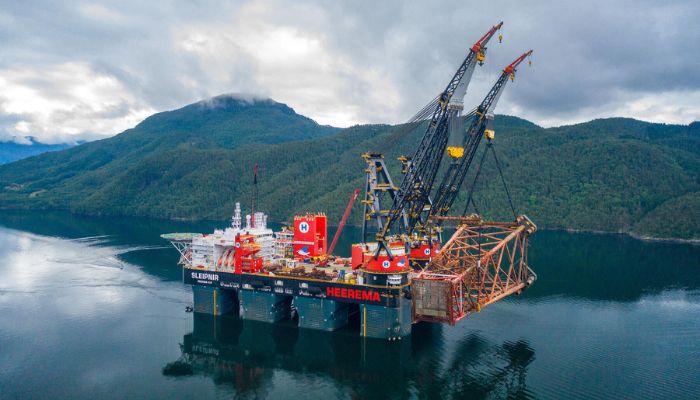
It has eight thrusters and can attain a speed of 12 knots. In 2019, the vessel successfully completed a lift of 15,300 tons in the Leviathan Gas field in Israel.
It is used to install or remove jackets, topsides, foundations, moorings and modules. It is 220 m long, 102 m wide and has a 12 to 32 m draft. Sleipnir has LED lighting, an energy recovery system and a novel silicon-based anti-fouling paint.
4. MS Ore Brasil- Largest Ore Carrier
MS Ore Brasil was built by Daewoo Shipbuilding and Marine Engineering, South Korea, in 2011 for the Brazilian mining company Vale. The Very Large Ore Carrier, with 402347 tons carrying capacity, is currently sailing under the flagship of Hong Kong.
Earlier known as the Vale Brasil, it is the first of seven 400,000 tonnes of VLOCs ordered by her owner from Daewoo and the other twelve from China. It was made to ship iron ore from Brazilian mines to Asian countries along the Cape of Good Hope around South Africa.
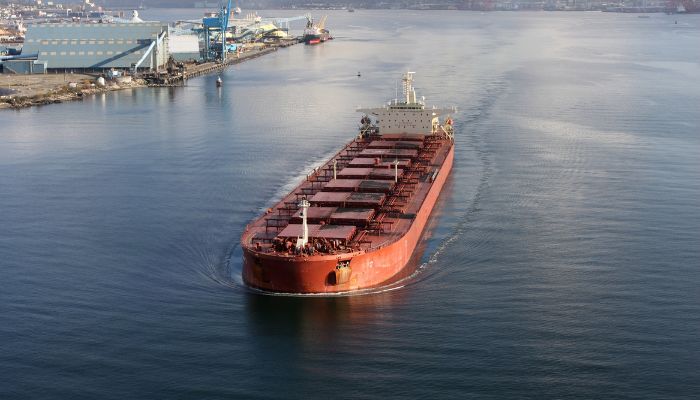
It contains seven cargo compartments with a total volume of 219,980 m3. She has a deadweight tonnage of about 402,347 tonnes. She can carry 11,150 trucks worth of iron ore when fully loaded and has a draught of 23 m. She has an overall length of 362 m and a breadth of 65.06 m.
The carrier can enter only specific deepwater ports in Europe, Brazil and China due to its enormous size.
5. MS Turanor PlanetSolar- the largest solar-powered vessel
The popularity of solar-powered vessels in the maritime domain is credited to Swiss engineer Raphael Domjan who harboured a dream of designing such a vessel for a long time. However, his vision was realised only in the late 2000s when he garnered supporters to make it a reality.
PlanetSolar took over a year to build and is 31 m long, 15 m broad, and around 6 m high, with a 1.5 m draft. It has a yacht-like design to offer comfort to its guests. 38,000 solar voltaic cells are spread over 5000 sq ft of its roof area. These cells absorb solar energy and store it in the 12 lithium-ion batteries in storage boxes.
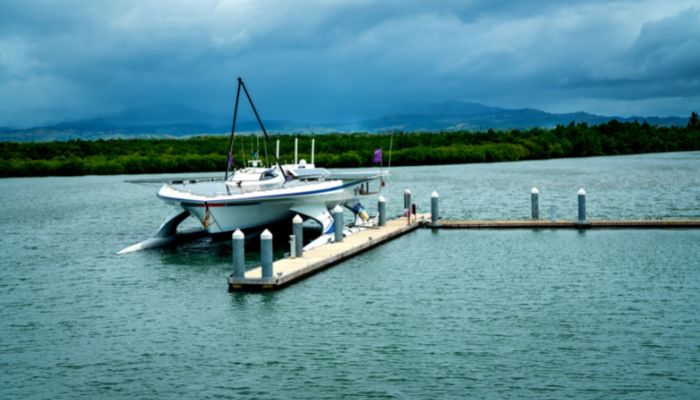
The boat can easily accommodate 40 people, and in 2019, it took a tour from Monaco and passed through many places like the Galapagos, South America, Asia and waters near the Equator.
6. CMA CGM Jacques Saade- World’s largest LNG-powered container ship
Named after the CMA CGM Group founder, Jacques Saade is an innovative vessel with numerous environment-friendly features. It was built at the Shanghai Jiangnan-Changxing Shipyard and was completed in 2020. She began operations on 23rd September 2020 and is sailing under the French flag.
She has a 23,000 TEU capacity and is the first ship of this size propelled by LNG. It is endowed with the latest technology and offers an enhanced map viewing option for easy navigation. It also contains a path prediction technology, which can display a predicted future location. The smart eye system provides a bird’s eye view of the surrounding region. It also has a system for managing the ventilation of reefer carriers.
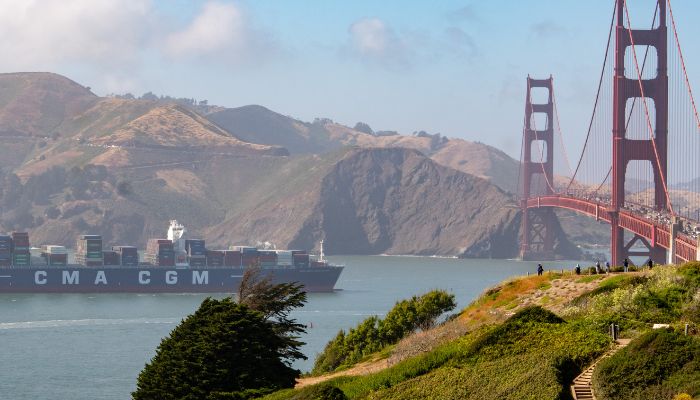
To improve its performance, its hull is hydrodynamically optimised. It has a straight bow and an improved propellor and rudder. The 400 m long and 61 m broad ship flaunts an LNG-powered Logo, a symbol of innovation in the maritime industry.
7. USS Gerald R-Ford Class- Largest aircraft carrier
Aircraft carriers are a crucial naval asset for any country, not only for conducting war operations but also for guarding the nation’s territorial waters. Five nations, including the United States, Britain, France, India and China, operate the largest aircraft carriers.
However, the largest among the lot is the US Navy’s latest Gerald R. Ford-class aircraft carriers. Around ten such carriers would be built; however, the first one was commissioned in 2017.
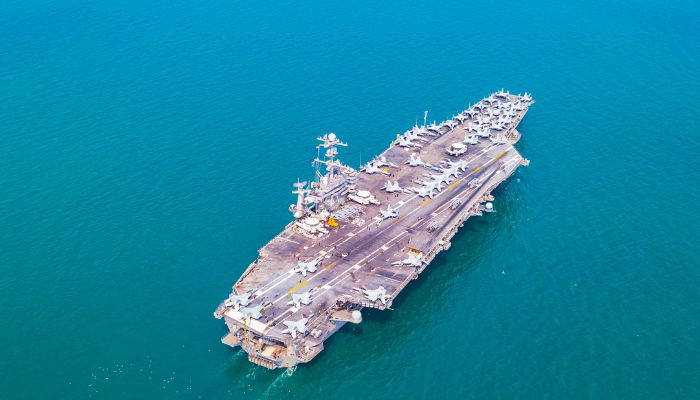
Regarded as a strong warship of the future, this carrier was constructed at a whopping of around 13 million US Dollars, along with additional research and development expenses of 37.3 billion dollars.
The USS Gerald R. Ford carrier measures 1,106 ft lengthwise and has a displacement of 112,000 tons. It can accommodate more than 4500 people onboard.
The warship has many surface-to-air missiles and machine guns- RIM-7 Sea Sparrow, RIM-116 and M2. The carrier can hold over 57 aircraft, such as the Sikorsky MH-60R helicopters and the Lockheed Martin F-35.
8. Yangtze River Three Gorges 1- Largest electric cruise ship
The novel watercraft was constructed by China Yangtze Power in collaboration with the Hubei Three Gorges Tourism Group. It measures 100 m lengthwise, 16.3 m breadthwise, and can easily accommodate 1300 people.
Mainly built for tourism and entertainment, it offers a plethora of activities to its guests onboard. The project was completed at the expense of about 23.5 million dollars.
The electric vessel is endowed with 15 Ningde times batteries and can sail up to 100 km if charged only once. Power to the vessel is supplied through the Three Gorges Dam situated in the area.
Unique features of the ship include low equipment failure possibilities and fewer operations and maintenance costs. It also has an automated control mechanism and a smart power management system for reducing power loss. It also has one of the most efficient air conditioning systems compared to similar vessels.
9. MV Tonsberg- largest RORO Ship
Owned by Wilh.Wilhelmsen, MV Tonsberg is the largest RORO Ship in the world. It has a length of 265 m and is 32.26 m wide with an 11 m draught. It has a gross tonnage of 76,500.
She has 6 fixed and 3 hoistable decks, giving it a total deck space of 50,335 m2 and a cargo volume of 138,000 m2.
Its stern ramps are 8 m wide, with the weather deck being 4 m wide. The latter can be used for loads like wind turbine blades, reducing the requirement for cranes.
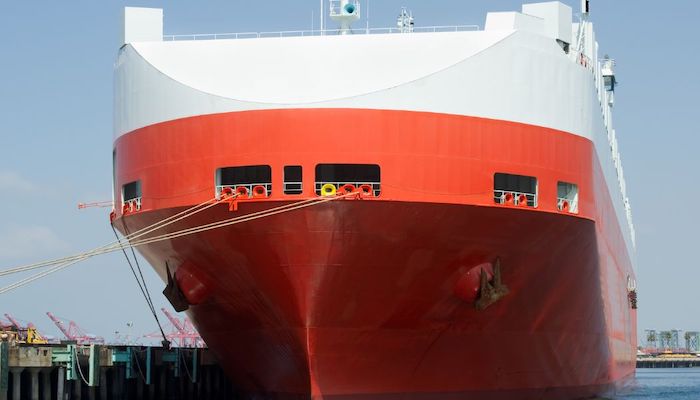
The hull is an improved version compared to other RORO ships and uses 15 to 20 per cent less fuel per unit of cargo. The vessel has better stability, decreasing the need for ballast water. It has a double bottom, and one of its deck is watertight.
10. Xinhaixun- World’s largest dredger ship fueled by LNG
The world’s biggest dual-fuel trailing suction dredger, the Xinhaixun, was launched in Qidong, China’s Jiangsu Province. It primarily uses LNG; however, it also has a diesel power system, giving it a dual-fuel capacity, which reduces emissions in the maritime industry and helps fight climate change.
It has a hopper capacity of 15,000 cubic metres and is 155.7 m long and 32 m wide with a maximum draught of 9.9 m. Xinhaixun was designed by 708 Research Institute of China State Shipbuilding Corporation (CSSC).
It has a main deck, and below it are 3 floors. The lower one is for power equipment like the main engine and the generator; the middle floor is for control systems like the centralised control console, and the upper deck houses cranes and equipment for dredging.
Xinhaixun is the biggest LNG-powered trailing suction dredger and will be delivered in September 2024. It will be used for dredging, coastal maintenance works on ports and deep water channels, and promoting the development of green shipping in China.
11. Island Victory- Most powerful tugboat
Island Victory is a special offshore installation ship owned by Island Offshore. It can handle multiple operations, which would otherwise require the service of many vessels. Hence, it has a flexible and extensive work profile, adding to its popularity.
The vessel has 2 Rolls-Royce engines with a power of 8000kW. It is 123 m long, 25 m broad and has a draught of 9.4 m. The ship’s decks span 1200 square metres.
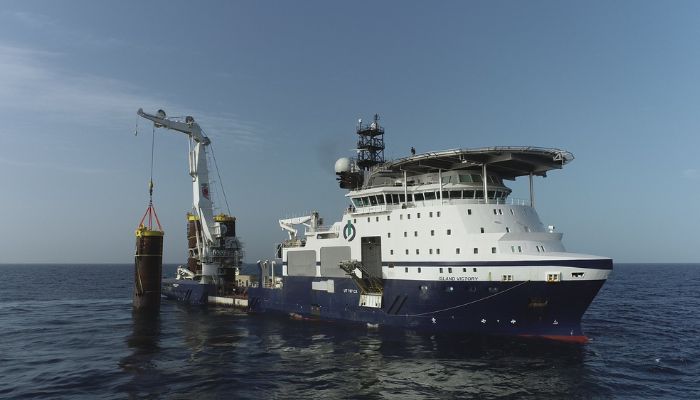
It was designed by Kongsberg Maritime and is equipped with 2 deck and two rail cranes, 2 ROVs, a moon pool, a huge offshore crane and a DP2 mechanism.
Hence, the vessel can undertake extensive offshore duties like laying subsea equipment on the seafloor, maintenance of oil rigs, installation of wind turbines and windmills, and also anchor handling operations.
It can also carry out oil recovery in the Norwegian region. For this purpose, the vessel has a storage tank for keeping 2300 m3 of oil. Lastly, the ship can carry 110 people.
12. Arktika- Most powerful Icebreaker ship
The world’s biggest and most powerful nuclear-powered ice-breaker, Arktika, was constructed in St.Petersburg, Baltic Shipyard.
It has a nuclear power plant with 2 pressurised water reactors driven by enriched uranium and two turbo generators.
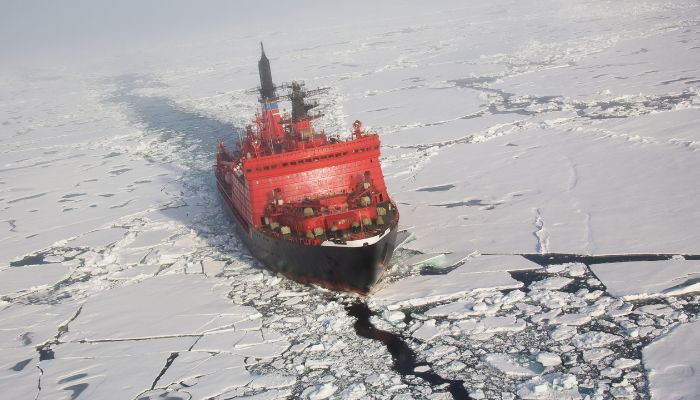
It can displace about 33,000 tons and has a length of 570 metres and a height of 168 m. The crew can expect excellent visibility of the surface ice and their surrounding areas from the ship. It is also larger than other ice-breakers owned by Russia.
It was designed to operate in harsh conditions of the northern sea shipping routes. It is strong enough to break 9 feet of ice while moving at 2 knots. Currently, Russia is the sole owner of nuclear-powered ice-breaker ships in the world.
You might also like to read
- Top 10 Biggest Ice Breaker Ships in the World in 2022
- Top 10 Biggest LNG Ships of 2022
- 10 Future Ships that Would Change the Face of the Shipping Industry
- 8 Biggest Ship Propellers in the World
- Top 10 Biggest Ports in the World in 2022
Disclaimer: The authors’ views expressed in this article do not necessarily reflect the views of Marine Insight. Data and charts, if used, in the article have been sourced from available information and have not been authenticated by any statutory authority. The author and Marine Insight do not claim it to be accurate nor accept any responsibility for the same. The views constitute only the opinions and do not constitute any guidelines or recommendations on any course of action to be followed by the reader.
The article or images cannot be reproduced, copied, shared, or used in any form without the permission of the author and Marine Insight.
Do you have info to share with us ? Suggest a correction
Latest Maritime Knowledge Articles You Would Like:
Subscribe To Our Newsletters
By subscribing, you agree to our Privacy Policy and may receive occasional deal communications; you can unsubscribe anytime.
Web Stories

About Author
Zahra is an alumna of Miranda House, University of Delhi. She is an avid writer, possessing immaculate research and editing skills. Author of several academic papers, she has also worked as a freelance writer, producing many technical, creative and marketing pieces. A true aesthete at heart, she loves books a little more than anything else.



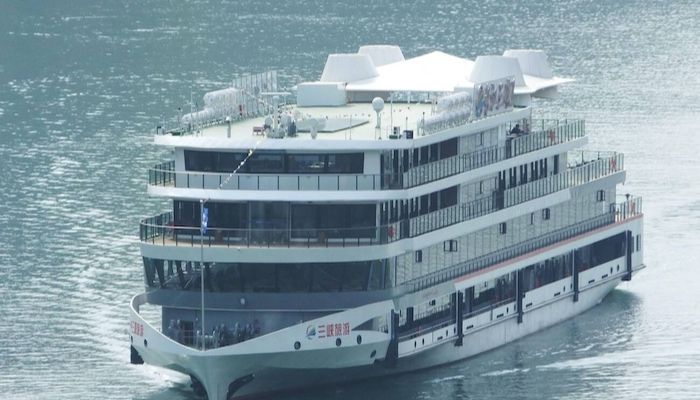
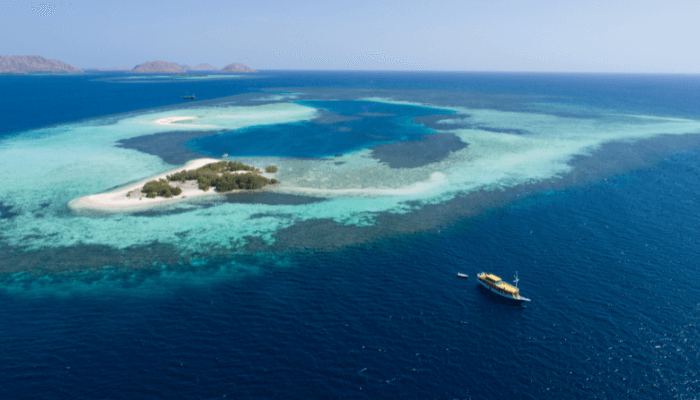
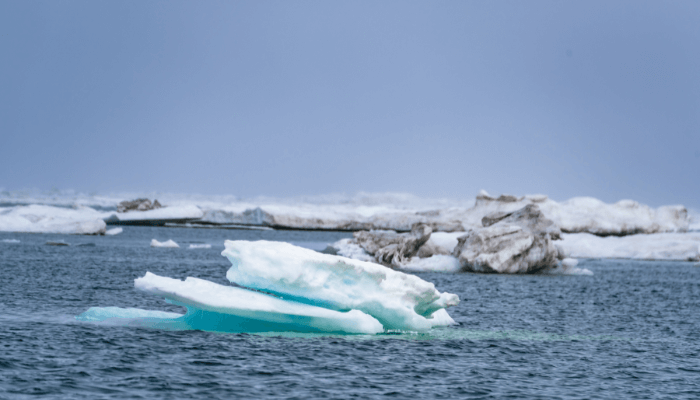
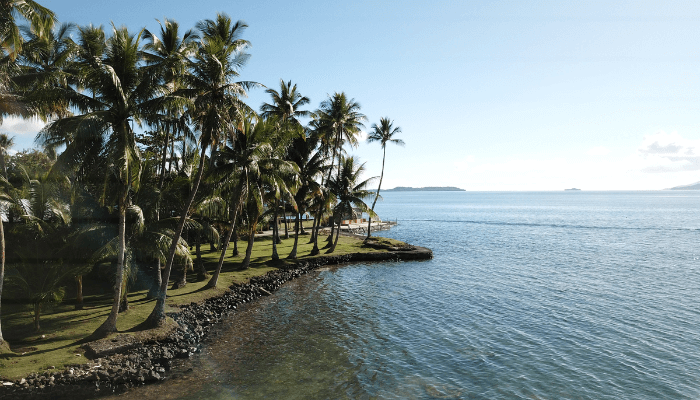
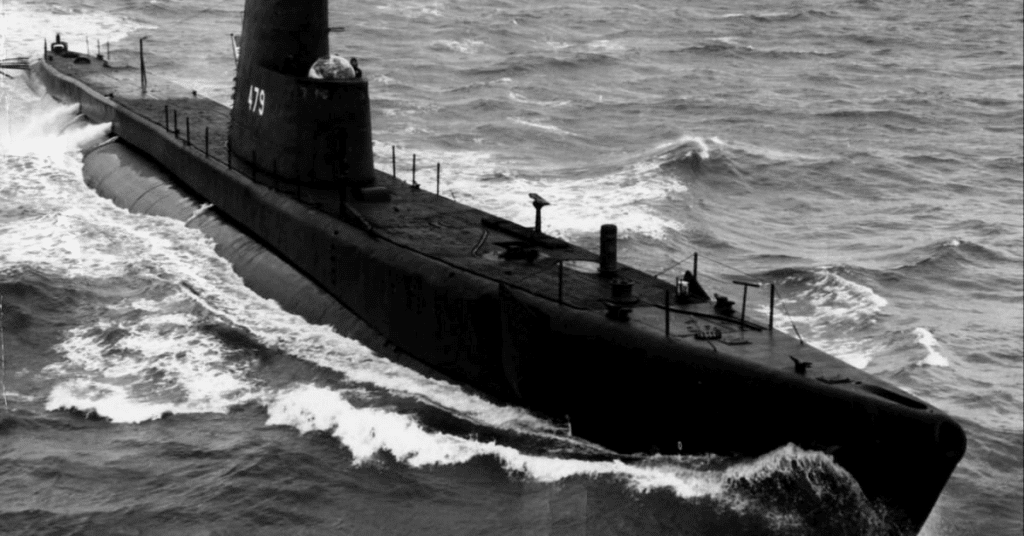

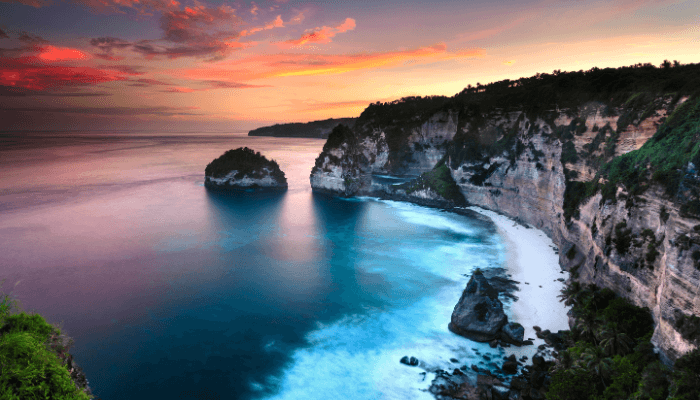

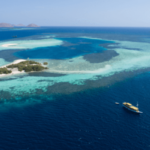

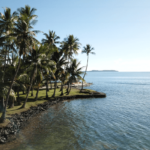
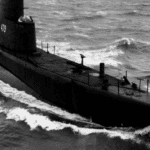

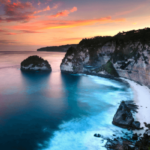

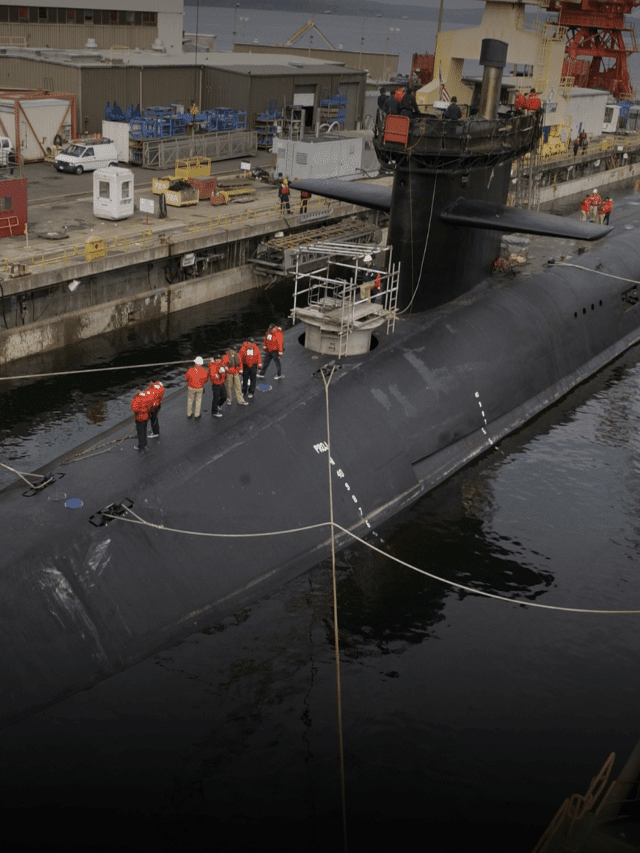
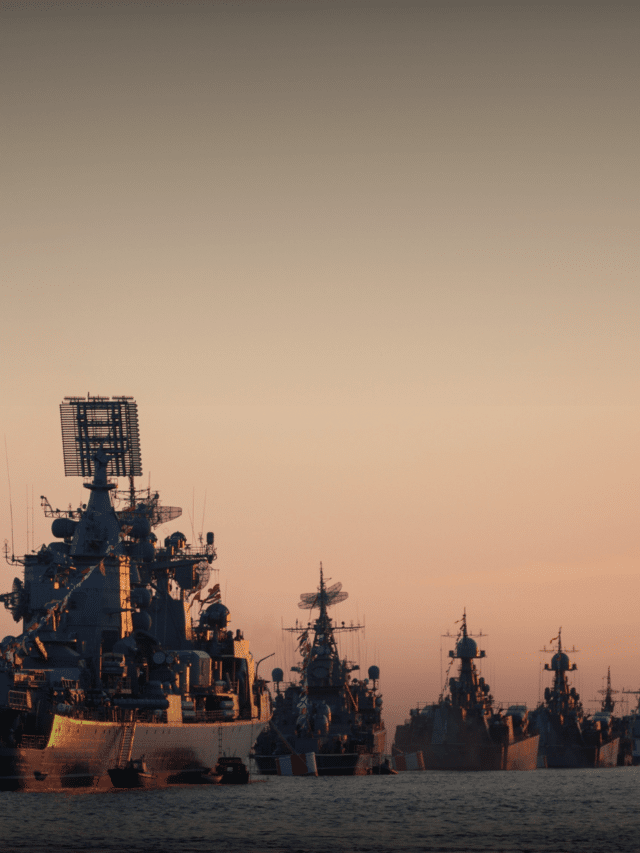
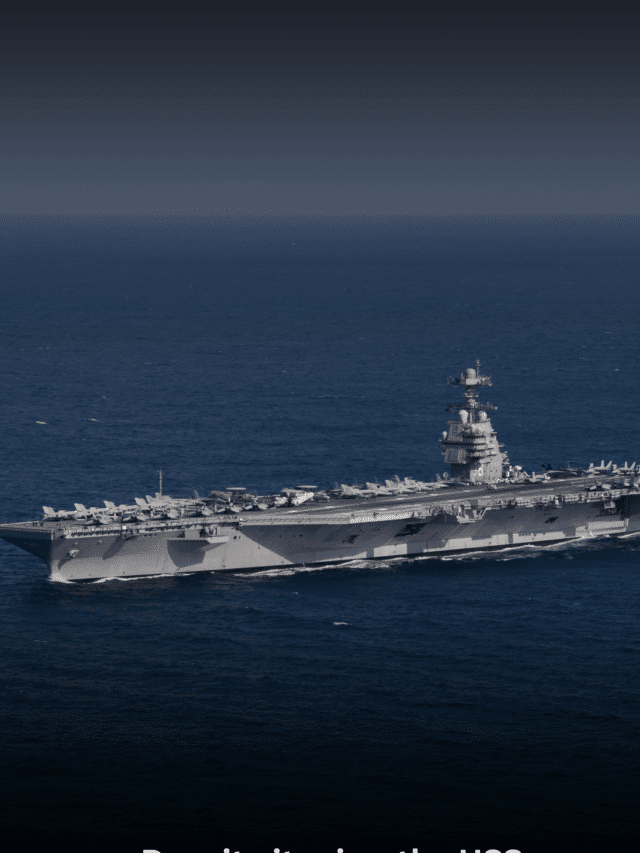
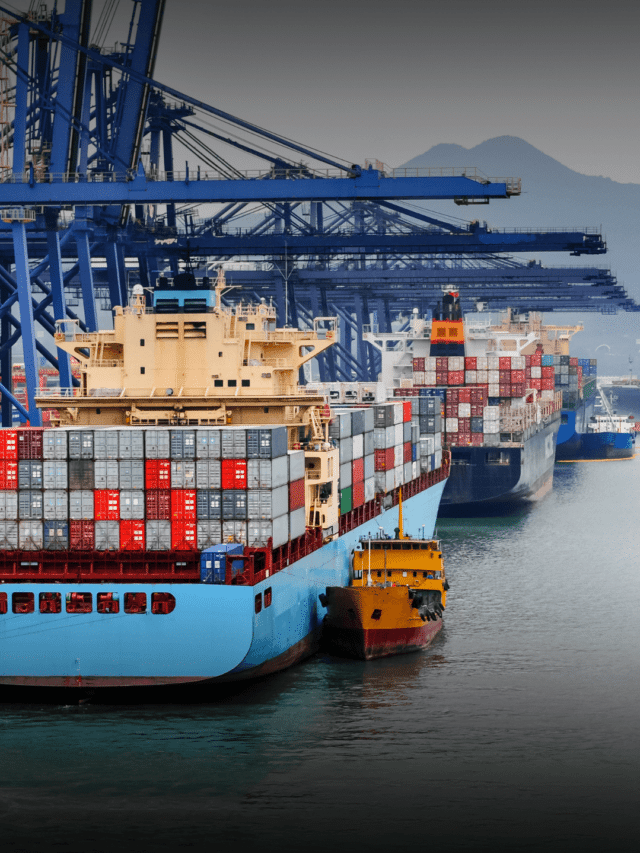
Very informative.
In the realm of floating liquefied natural gas (FLNG) platforms, Shell’s Prelude stands as the largest ship ever constructed, measuring an impressive 1,601 feet in length and 243 feet in width. Its remarkable size and innovative design make it a true marvel of modern engineering.